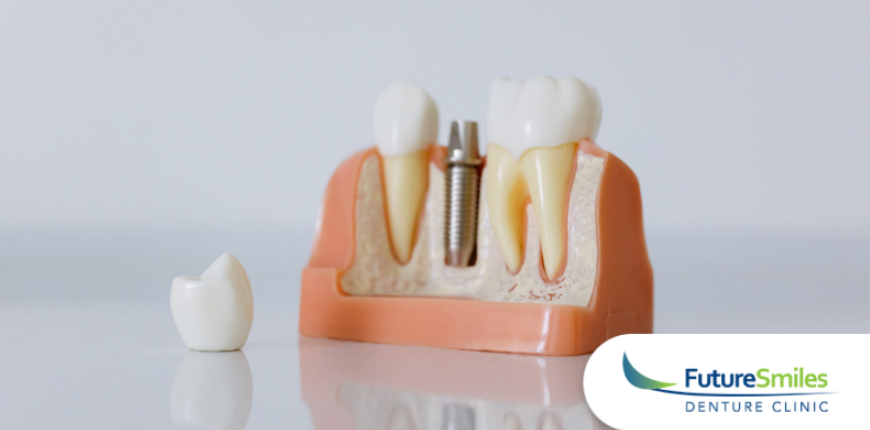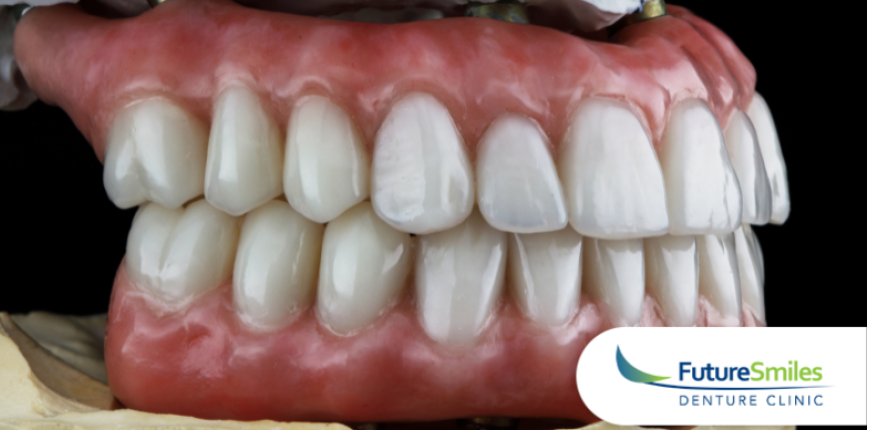At Future Smiles Denture Clinic, we know how important it is for you to feel comfortable and confident with your smile. Denture implants are a life-changing solution for many people, offering a natural look and feel while restoring functionality to your teeth. However, choosing the right denture implants can be a big decision, and it’s essential to understand your options and what works best for your individual needs. In this blog, we will share three important tips to help guide you in selecting the right denture implants, ensuring you make a choice that enhances your smile and overall well-being.
1. Assess Your Oral Health and Implant Needs
The first step in choosing the right denture implants is to assess your current oral health and understand what kind of implants are suitable for your situation. Every person’s mouth is unique, and the right solution for one individual may not be the same for another. A thorough evaluation by your dentist will help determine if you’re a good candidate for denture implants, and if so, how many implants you’ll need to support your dentures.
If you have experienced significant tooth loss or bone deterioration, your dentist may recommend additional procedures like bone grafting to create a strong foundation for the implants. The health of your gums and jawbone will play a key role in deciding whether denture implants are the right choice. People with healthy gums and adequate bone density are typically good candidates for implants, while those with compromised bone health may need extra treatment before moving forward.
In your initial consultation, your dentist will take X-rays and possibly 3D scans to evaluate the condition of your jawbone and plan the placement of the implants. Based on your oral health, the dentist will recommend the right type of implants, whether full arch, partial, or mini-implants, to best suit your needs.
2. Consider the Different Types of Denture Implants
Understanding the different types of denture implants is crucial to making the right choice for your smile. There are several options available, each offering specific benefits depending on your circumstances. Two of the most common types of denture implants are full arch and implant-retained dentures.
-
Full Arch Implants: These implants are ideal for patients missing all teeth in either the upper or lower jaw. They provide a complete set of teeth anchored securely with multiple implants. Full arch implants offer the best stability and function, allowing you to eat, speak, and smile confidently without worrying about your dentures slipping.
-
Implant-Retained Dentures: This option is great for individuals who are looking for extra stability but still want a removable option. Implant-retained dentures are secured by two to four implants, which helps hold the dentures firmly in place while still allowing for easy removal for cleaning.
-
Mini Implants: If you have a narrower jawbone or less bone density, mini implants might be a better solution for you. They are smaller in size compared to traditional implants but still offer a secure foundation for dentures. Mini implants are also less invasive, making the surgery and recovery quicker.
It’s important to discuss your lifestyle, dental goals, and budget with your dentist so they can recommend the most appropriate type of denture implants for you. Each option has its pros and cons, so understanding how they align with your daily life is essential.
3. Factor in Cost and Long-Term Benefits
Denture implants are an investment, not only in your smile but also in your long-term dental health. While the upfront cost of denture implants can be higher than traditional dentures, it’s important to consider the long-term benefits and the potential savings in future dental work.
Traditional dentures often need frequent adjustments, relining, or replacement as your gums change shape over time, while denture implants provide a more permanent solution. The implants themselves stimulate your jawbone, preventing bone loss that can occur with traditional dentures. This helps preserve the natural structure of your face and keeps your dentures fitting well for years to come.
When factoring in cost, it’s important to ask about the different pricing tiers based on the type of implants and materials used for the dentures. High-quality implant systems may have a higher upfront cost, but they typically offer better longevity and comfort. Many dental practices, including Future Smiles Denture Clinic, offer financing plans and flexible payment options to make the process more affordable.
Additionally, check if your dental insurance covers part of the cost of denture implants. While some plans may not cover the full cost, they might offer partial coverage for certain aspects of the procedure, such as the initial consultation or preparatory treatments like bone grafting.
Choosing the right denture implants for your smile is an important decision that requires thoughtful consideration of your oral health, lifestyle, and budget. By assessing your needs, understanding the different types of implants, and weighing the long-term benefits against the cost, you can make an informed choice that will leave you smiling with confidence for years to come. At Future Smiles Denture Clinic, we are here to help guide you through the process, offering personalized care and expert advice every step of the way. Contact us today to schedule a consultation and take the first step toward a healthier, happier smile.
FAQs
Q: What are implant-retained dentures?
A: These are removable dentures secured by 2–4 implants, offering extra stability while allowing for easy removal for cleaning.
Q: Do denture implants help prevent bone loss?
A: Yes, denture implants stimulate the jawbone, helping to prevent bone loss, which often occurs with traditional dentures.
Q: How do I choose the best type of denture implant for me?
A: Discuss your lifestyle, budget, and dental goals with your dentist, who will recommend the most suitable type of implant based on your oral health and individual needs. Call or book your free consultation with Future Smiles Denture Clinic so you can make the best decision for your unique situation.







